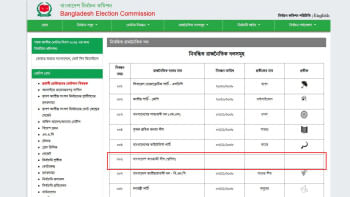Why we should care about the WGA strike

Unless you have been abstaining from the internet for the last six months, regardless of where you live, you have heard about the writers' strike that is going on in the US. In particular, this strike involves two main parties: the Writers Guild of America (WGA) and the Alliance of Motion Picture and Television Producers (AMPTP). The WGA comprises over 12,000 writers who operate in Hollywood, while the AMPTP is a trade association that represents more than 350 film and television production companies, including the likes of Paramount, Sony, Warner Bros, Universal, Disney, Netflix, and so on.
Now, you might ask, "Well, this is happening in the US. Why do I care?"
Highly anticipated films and TV series that are incredibly popular all over the world were put on hold as a result of this strike. But even more than that, the ability to strike and demand things from large corporations – who are notorious for underpaying workers – has some resonance when it comes to Bangladesh as well.
This strike came about because writers wanted fairer compensations, proper residuals, regulation of artificial intelligence (AI), better working standards, and anti-discrimination measures.
Now, compensation is easy to understand. Writers are notably underpaid around the world. Residuals, however, are a more complicated matter. Simply put, residuals are payments writers get whenever their work is reused. As an example, say you wrote a show that was aired on TV. Afterwards, DVDs and digital downloads of the show were also sold, which would result in a writer getting a cut from it. Similarly, if the show is sold to other countries to be aired, writers would also get a cut then. Basically, every time a piece of content makes some money again, a writer – who has played a role in creating this content – gets some amount of money.
Now, all of this went out the window when streaming platforms entered the market. See, Netflix can commission a show that is initially released in North America only. Then, when it makes its way to other countries, Netflix decides how much it pays. While previously it would involve media companies in other countries paying top dollar to get the rights to air a show, now Netflix just makes it available in another country and pays close to minimal residuals to the people who were responsible for making the show in the first place.
This is how writers get unfairly treated. Streaming made content so accessible and easy to monetise that these companies got a little too greedy and decided they could just get away with not paying writers their fair dues. As a result, the WGA decided to initiate a strike.
Another big point was the use of AI. We have already seen AI's capability to write things. And while it may not be great at writing long-form fictional content right now, it won't be the case a little way down the line. AI is being trained on documents from a wide array of topics, and if these big production companies choose to feed their back catalogue of scripts, it won't take AI too long to adapt to writing content.
If there is one thing the billion-dollar companies know how to do, it is cutting costs, and if we left them to their devices, I am certain very soon all of the content we consume would be created by AI. While the ethics of this is a whole other discussion, I don't think it is difficult to see why it would be problematic if AI started taking over human jobs, mostly ones that require years of skill and training.
Late last month, the WGA strike finally came to an end after almost 146 days, after reaching a tentative agreement. While details of the deal have not been fully disclosed, WGA sources have said they got most of what they were looking for. A splendid and well-deserved victory.
Now, why should any of this matter to us in Bangladesh? Well, the noose around our pockets has gotten tighter. Our salary is almost gone five days after it hits our bank accounts, and things are just not doing so great economically. Amid all of this, we have not had widespread wage or salary adjustments to deal with the ongoing cost-of-living crisis. Irrespective of how bad the industry you work in is doing, someone has gotten rich over the years on the back of the average worker's hard work. But now, when inflation is making people go broke, everyone wants to cry about how money is tight.
If Bangladesh had stronger unions, in every sector, we wouldn't be in this situation. Regardless of whether you're a labourer, writer, journalist, executive, etc, you deserve fairer pay to reflect the market you're in right now.
When the WGA went on strike, people rallied around in support. Actors, musicians, TV personalities, average people all came forward to support the writers. GoFundMe pages and charities were operating round the clock to make sure these writers were not forced to return to work because they had gone broke. Unfortunately, in Bangladesh, I don't see that kind of kinship. But maybe someday we will realise that we need to stand by each other when battling large organisations that see our lives as a means to their end.
Aaqib Hasib is a sub-editor at The Daily Star.
Views expressed in this article are the author's own.
Follow The Daily Star Opinion on Facebook for the latest opinions, commentaries and analyses by experts and professionals. To contribute your article or letter to The Daily Star Opinion, see our guidelines for submission.

 For all latest news, follow The Daily Star's Google News channel.
For all latest news, follow The Daily Star's Google News channel. 











Comments